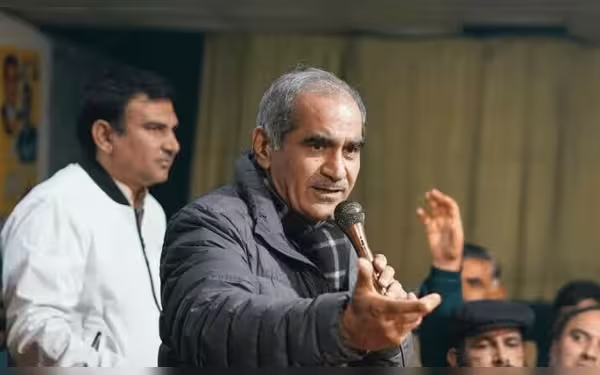Friday, October 4, 2024 06:26 AM
Saad Rafique Warns Against Remote Control Democracy in Pakistan
- Rafique criticizes elite influence on democracy.
- Balochistan described as a 'simmering volcano'.
- Call for genuine representation and accountability.
 Image Credits: dawn.com
Image Credits: dawn.comSaad Rafique emphasizes the need for genuine democracy in Pakistan, criticizing elite control and highlighting Balochistan's pressing issues.
In recent times, the political landscape of Pakistan has been marked by a growing discontent among various leaders regarding the direction of their parties. One such leader, Khawaja Saad Rafique of the Pakistan Muslim League-Nawaz (PML-N), has voiced his concerns about the current state of democracy in the country. His remarks come at a time when many are questioning the effectiveness of political leadership and the influence of wealthy individuals in shaping policies.
During a statement made on Monday, Rafique emphasized that "democracy cannot function under remote control". This statement highlights a significant issue in Pakistan's political arena, where decisions are often perceived to be influenced by powerful elites rather than being driven by the will of the people. Rafique's comments resonate with many citizens who feel that their voices are not being heard in the corridors of power.
Furthermore, Rafique pointed to the situation in Balochistan, a province that has been facing numerous challenges for years. He described it as "a simmering volcano", indicating that the issues there are not only pressing but also potentially explosive if left unaddressed. The lack of attention to Balochistan's problems has led to frustration among its residents, who are yearning for solutions and support from the central government.
Rafique's critique of the current political dynamics serves as a reminder of the importance of genuine democratic practices. It raises questions about the role of wealth in politics and whether billionaires should have the power to dictate the course of governance. The essence of democracy lies in representation and accountability, and when these principles are compromised, the very foundation of democracy is at risk.
As Pakistan navigates its complex political landscape, the voices of leaders like Khawaja Saad Rafique are crucial. They remind us that democracy should be a system of governance that reflects the needs and aspirations of all citizens, not just a select few. It is essential for the political leadership to listen to the concerns of the populace and work towards a more inclusive and responsive government. Only then can democracy truly thrive in Pakistan.













